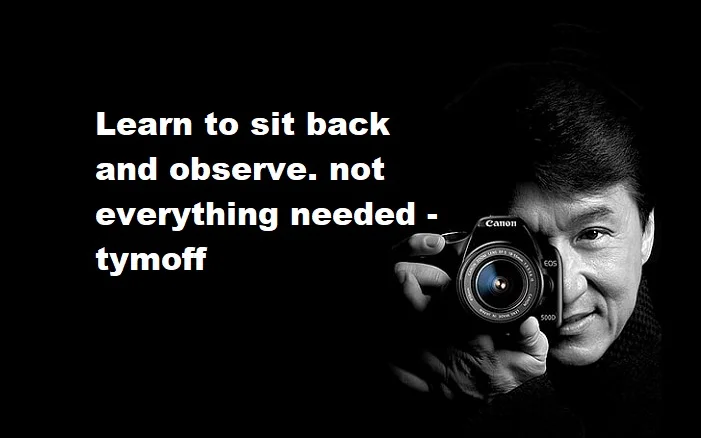Have you ever wondered what it means to truly observe? We live in a world that moves at breakneck speed, where constant activity and immediate learn to sit back and observe. not everything need – tymoff reactions are often valued above all else. Yet, there’s an incredible power in learning to sit back and observe, understanding that not everything needs an immediate response.
The Art of Observation
Observation is more than just seeing. It’s about noticing the details, understanding the context, and appreciating the bigger picture. When you take the time to sit back and observe, you start to notice things you might have otherwise missed. This practice can transform how you interact with the world and improve your decision-making.
Why Immediate Reactions Aren’t Always Necessary
In our fast-paced society, there’s immense pressure to respond quickly. Whether it’s replying to a message, commenting on a social media post, or making a decision at work, the expectation is to act immediately. However, this constant rush can lead to mistakes and misunderstandings. By taking a step back and observing, you allow yourself the time to think critically and respond thoughtfully.
Gaining Perspective
Sitting back and observing provides you with a broader perspective. When you’re not rushing to react, you can see situations more clearly and understand different viewpoints. This perspective is invaluable in personal relationships, professional settings, and even in your own personal growth. It allows you to approach situations with empathy and insight.
Reducing Stress
Constantly feeling the need to react can be incredibly stressful. This stress can affect your mental and physical health. Learning to observe rather than immediately react can reduce this stress. By giving yourself permission to take a moment, you can calm your mind and approach situations more rationally.
Building Patience
Observation requires patience. In a world where instant gratification is the norm, patience is a rare but valuable trait. By practicing observation, you cultivate patience within yourself. This patience can improve your interactions with others and help you navigate challenging situations more effectively.
Enhancing Communication
When you sit back and observe, you become a better communicator. You learn to listen more and talk less. This improved listening allows you to understand others better and respond more appropriately. Enhanced communication leads to stronger relationships and fewer conflicts.
The Role of Mindfulness
Observation is closely linked to mindfulness. Mindfulness involves being present in the moment and fully engaging with your surroundings. By practicing mindfulness, you enhance your ability to observe and appreciate the world around you. This practice can lead to greater happiness and contentment.
Practical Tips for Developing Observation Skills
How can you develop the habit of sitting back and observing? Here are some practical tips:
- Pause Before Responding: Give yourself a moment to think before you react to any situation.
- Practice Mindfulness: Engage in activities that promote mindfulness, such as meditation or yoga.
- Listen More: Focus on listening actively when others are speaking instead of thinking about your response.
- Reflect Daily: Spend a few minutes each day reflecting on your experiences and what you observed.
Applying Observation in Daily Life
Implementing observation into your daily life can have profound effects. At work, it can help you understand your colleagues and make better decisions. In your personal life, it can improve your relationships by fostering deeper connections. Even in moments of leisure, observation can enhance your appreciation of the world.
Overcoming Challenges
Like any skill, developing the habit of observation comes with challenges. It’s easy to fall back into the habit of immediate reaction. However, with practice and dedication, you can overcome these challenges. Remember that observation is a journey, not a destination.
Personal Growth Through Observation
Observation isn’t just about understanding others; it’s also about understanding yourself. By observing your own thoughts and behaviors, you can gain insights into your motivations and actions. This self-awareness is crucial for personal growth and self-improvement.
Encouraging a Culture of Observation
Imagine a world where everyone took a moment to observe before reacting. This shift could lead to more thoughtful interactions, less conflict, and greater understanding. By encouraging a culture of observation, we can create a more harmonious and compassionate society.
Conclusion: Embrace the Power of Observation
In a world that often values speed over thoughtfulness, learning to sit back and observe is a powerful skill. It can improve your mental health, enhance your relationships, and lead to better decision-making. So next time you feel the urge to react immediately, take a moment to sit back and observe. You might be surprised at the benefits this simple practice can bring.
learn to sit back and observe. not everything need – tymoff

